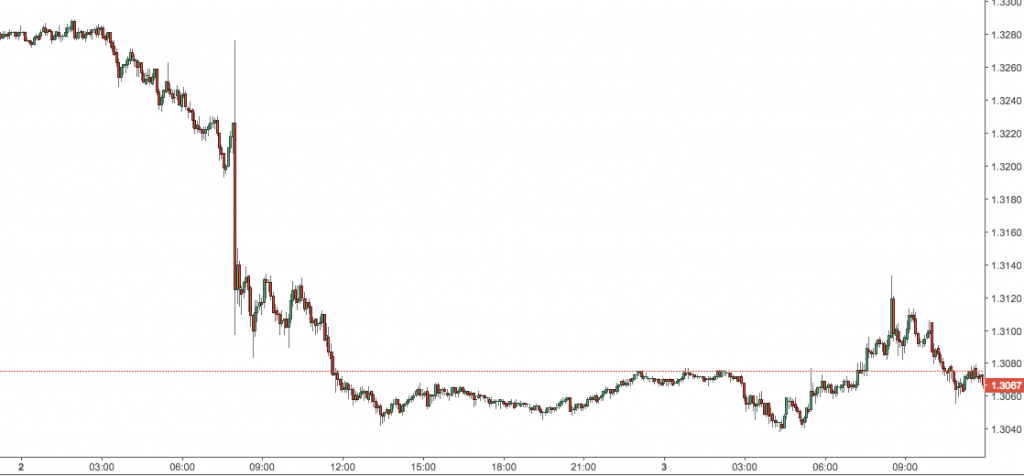Pound Falls As BOE Signals “One & Done” On Rate Hikes.
The Pound fell sharply this week as the Bank of England signaled that further rate rises were unlikely going forward. The GBP has enjoyed a strong last month or two, almost regaining the ground lost of brexit last year. It has been very volatile, however, as Brexit talks and concerns continue to keep traders and investors on edge.
If rates went up, why did the Pound fall?
The BOE raised rates on November 2, much in line with market expectations. New traders might look at headline rate increase and punch into a long GPDUSD position, looking to capitalise on the post-news momentum. As you can see from the price action, anyone who made that decision was only briefly in the money, before a sharp reversal.
There’s a couple of reasons why price fell after the announcement. Firstly, the rate increase was already priced into the market. It was expected to happen, so traders had positioned accordingly. The important thing to consider is future rate expectations. These were dovish, and the Pound sold off as traders digested the accompanying information.
How do we know they were dovish?
The BOE Monetary Policy Committee (MPC) is made up of 9 members. Part of any BOE rate statement is the “MPC Official Bank Rate Vote”, which tells us how many members voted for the decision made. In this case, 7 members voted for a rate rise. This indicates that the decision wasn’t unanimous, and is a closely watched indicator.
The other important tell is in the statement, which noted that ““all members agree that any future increases in Bank Rate would be expected to be at a gradual pace and to a limited extent”. Traders took this as extremely dovish, and believe that this rate increase was a “one and done” scenario.
This represents a bit of a shift in policy from the BOE, which was viewed as slightly hawkish. The GBP could see further losses from here, especially as the US economy continues to impress and the Euro zone stays steady.
